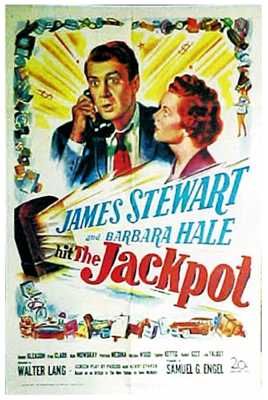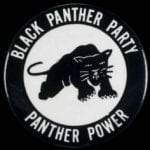 History
History  History
History  Health
Health 10 Everyday Activities That Secretly Alter Consciousness
 History
History Top 10 Historical Disasters Caused by Someone Calling in Sick
 Animals
Animals 10 New Shark Secrets That Recently Dropped
 Movies and TV
Movies and TV 10 Forgotten Realities of Early Live Television Broadcasts
 Technology
Technology 10 Stopgap Technologies That Became Industry Standards
 Weird Stuff
Weird Stuff 10 Wild Facts About Taxidermy That You Probably Didn’t Know
 Travel
Travel 10 Beautiful Travel Destinations (That Will Kill You)
 Miscellaneous
Miscellaneous 10 Modern Marriage Rituals Born from Corporate Branding
 Weird Stuff
Weird Stuff Ten Bizarre Visions of 2026 from Fiction
 History
History 10 “Modern” Problems with Surprising Historical Analogs
 Health
Health 10 Everyday Activities That Secretly Alter Consciousness
 History
History Top 10 Historical Disasters Caused by Someone Calling in Sick
Who's Behind Listverse?

Jamie Frater
Head Editor
Jamie founded Listverse due to an insatiable desire to share fascinating, obscure, and bizarre facts. He has been a guest speaker on numerous national radio and television stations and is a five time published author.
More About Us Animals
Animals 10 New Shark Secrets That Recently Dropped
 Movies and TV
Movies and TV 10 Forgotten Realities of Early Live Television Broadcasts
 Technology
Technology 10 Stopgap Technologies That Became Industry Standards
 Weird Stuff
Weird Stuff 10 Wild Facts About Taxidermy That You Probably Didn’t Know
 Travel
Travel 10 Beautiful Travel Destinations (That Will Kill You)
 Miscellaneous
Miscellaneous 10 Modern Marriage Rituals Born from Corporate Branding
 Weird Stuff
Weird Stuff Ten Bizarre Visions of 2026 from Fiction
Top 10 Lesser Known Jimmy Stewart Movies
James Maitland Stewart, affectionately known as ‘Jimmy’ to his fans (although the actor didn’t like the nickname), was born May 20th, 1908, and appeared in 92 films during his long career – until his death on July 2nd, 1997. He won an Oscar for his portrayal of Mike Connor in The Philadelphia Story (1940), which he immediately gave to his long-time disapproving father – who had it installed in a display case in his hardware store, along with an open job offer in case Stewart should ever return home to his native Indiana, in Pennsylvania. His Mother, Elizabeth, having supported his choice of career since the beginning, was delighted when, in the Autumn of 1934, he was spotted by an MGM scout during his opening night performance of the play Divided by Three, in New York City, after which Stewart was flown to Los Angeles to take a screen test. The test was a success, and Stewart signed a seven-year MGM contract, in April of 1935, as a ‘contract player’. Under these rules the performer under contract was at the disposal of the corporation and could not, in most cases, work independently from that studio, corporation or producer to whom they were contractually committed and liable. He agreed, and was paid $350 a week – a modest sum – worked six days a week at MGM, and upon reflection he said:
“You hear so much about the old movie moguls and the impersonal factories where there is no freedom. MGM was a wonderful place where decisions were made on my behalf by my superiors. What’s wrong with that?” “The big studios were an ideal way to make films – because they were a home base for people. When you were under contract, you had no chance to relax.” (Wayne, 2004).
James Stewart went on to make a host of popular movies, including: Rope, The Man Who Knew Too Much, Vertigo, Rear Window, Anatomy of a Murder, Mr Smith Goes To Washington, The Philadelphia Story, Flight of The Phoenix, The Man Who Shot Liberty Valance and, of course, Harvey and It’s A Wonderful Life. This list takes a look at some of the lesser-known works of Stewarts’ long career, including some lost gems you may not have come across before. If you have any more to add, please include them in the comments.
Stars of the studio system mainly had two career opportunities: to appear in leading roles in small movies, or to appear in small roles in large movies, and this – only the fourth movie in Stewart career, is one of the latter. In this movie, Stewart plays a small-time lover of Clark Gables secretary, played by Jean Harlow. The secretary is swayed between the two love interests, but eventually gets entangled in an even bigger mess as she goes head-to-head with Myrna Loy (the wife) for the affections of Gable. The wife, egged on by her mother, suspects things are getting hot between Gable and his secretary, but can’t prove anything. Eventually, Gable gets a call to go to Cuba on a business trip, and, having convinced his wife that the trip will be a bad idea, he then elects to take his secretary instead. Although Wife Vs Secretary features Stewart for all of five minutes, the movie stands out as an imaginative take on the old love triangle formula – and is still a wonderfully fascinating psychological drama dressed up as a light hearted comedy.
Stewarts love of westerns saw him appear in thirteen western outings during his career, this, the seventh in the line, sees Stewart out for revenge! Will Lockhart (Stewart) is a small time goods trader out of a town named Laramie (La-Ray-Me). On arrival at Coronado, an isolated western town, he is set upon by the henchmen of a powerful cattle baron named Alec Waggoman. His goods are stolen, his mules shot and Lockhart is forced to shack up with an old spinster, who turns out to be the niece of the baron himself. Unbeknown to the others, Lockhart is also on the trail of the murderers of his Brother, and suspects the Waggomans to be involved. Vic Hansbro, a small-time ranch-hand, heads out with Dave Waggoman to put an end to Lockharts meddling, but soon discovers a heap of guns and a deal with the Apache’s, leading to an action-packed showdown.
Stewart teams up with his long-time best friend Henry Fonda in this, his thirteenth and final comedy western. Having been a cattle man and abject wanderer for the past twenty years, John O’Hanlan (Stewart) gets an offer he can’t refuse. One of his long lost relatives has died, leaving O’ Hanlan an establishment known as the Cheyenne Social Club. A tentative Harley Sullivan (Fonda) goes with him, and the pair head out to claim the prize. The reward turns out to be a full-time whore house, and the occupants are none too keen on changing their ways. It becomes apparent that the town, and the railroad, have come to depend on the Club, and all Stewarts efforts to close it down end up with physical threats and general dismay. In the meantime, he has to deal with the day-to-day running of the operation, and heads out to tackle one client who has badly beaten the brothels madam, Jenny. The perpetrator – Bannister – is thwarted, but the Bannister gang threaten to return and take their revenge!
The height of Stewarts western popularity – and the third collaboration with his favorite action director, Anthony Mann – resulted in this early 50’s psychological suspense thriller. It’s 1868, and Stewart plays Howard Kemp, a bounty hunter hot on the heels of the outlaw Ben Vandergroat (Robert Ryan) for a promise of $5000. Stewart teams up with a grizzled old prospector, Jesse Tate (Millard Mitchell) and an army deserter, Roy Anderson (played by Ralph Meeker), who trap Vandergroat in his hide-out, and then attempt to drag him back to Abilene to claim the bounty. The matter is complicated by Vandergroats devious mind, as he and his associate Lina Patch (played by Janet Leigh) attempt to spread deception, mistrust and lies among the group, until none of the characters will trust each other. Betrayal looms, and after a thrilling encounter with a group of Blackfeet Indians, the men have to survive each other, leading to a thrilling hilltop showdown.
In this screwball (highly sexist) black comedy, Stewart plays Guy Johnson, a detective on a case of murder. His only clue is a half dime incorporated into a piece of jewelry, but before he can do anything with it, he and his employer – Willie Heywood (Ernest Truex), are arrested and sentenced to jail. On the way to jail, Stewart escapes by jumping from a moving train into a river, and a fist fight later he staggers out to discover poetess Edwina Corday (Claudette Colbert). Faced with a potential double murder on his hands, Stewart initially snatches Colbert as his unwilling hostage, but after losing her and grabbing her back again, the hotly bigoted banter eventually sees the pair coming closer together. The trail then leads to a professional theatre group where a man is about to be shot. Stewart brings in his associate ‘Cap’ Streeter (Guy Kibbee), but a desperate Colbert mistakes him for a henchman, leading to the duo getting reacquainted with the police. Just as things begin to look impossible, and Stewarts charm seems exhausted, the ever bumbling Colbert reveals a vehement ploy – exclaiming: “I swear by my eyes!!”.
This quirky philosophical comedy from the later 1930’s won two academy awards: best picture and best director. Frank Capra was a hot property after directing the 1937 epic Lost Horizon, and was keen to follow that movie with another morally cautious tale. The result sees Stewart playing Tony Kirby, who falls for Alice Sycamore (Jean Arthur), who appears to be the only sane member of the Sycamore family. The grandfather of the house, Martin Vanderhof (Lionel Barrymore), is a scatty old man with serious moral issues around money and material possessions. The rest of the house is filled with similar eccentrics: an ever-dancing ballerina daughter, her nutty xylophone-playing husband, a seriously hungry Russian house-guest and a trio of egg-headed inventors who love to blow things up in the basement! It isn’t long before Stewart wonders what the heck he is about to get himself into. The showdown happens when Stewart brings his own Father, Anthony P. Kirby (Edward Arnold) and Mother (played by Mary Forbes), along to meet Alice for the first time. Things don’t exactly go as planned, and the two father figures end up in jail. Here, the sly and philosophical Vanderhof character challenges the high rolling banker Kirby Snr. to a duel of wits. Mr Kirby is having none of it, and applies to take possession of the Sycamore family home – but the issue is far from over…

The Jackpot tells the story of Bill Lawrence (Stewart), a department store manager stuck in a rut. Barbara Hale plays Stewarts wife, Amy, a bubbly character with a big heart and a big mouth, and a young Natalie Wood plays Stewarts down-trodden daughter, Phyllis. An aggrieved hard-boiled boss is also making life a little difficult, but ignites Stewarts attention with an offer of promotion. In the meantime, Stewart gets a mysterious phone call and the opportunity to take part in a radio show to win a $24,000 prize. Initially discrediting the prize, Stewart perks up as the hour of the radio show approaches. A series of bumbling disasters can’t stop the inevitable – Stewart wins, but not a fortune, and is given his reward in the shape of $24,000 worth of ‘prizes’. Soon, truck-loads of obscure and absurd items appear in the mail, and the family have no way to store or make use of most of it. To make matters even more tricky, a beautiful portrait painter arrives and takes Stewart out to a hotel – making Amy instantly dubious and paranoid. Then the government steps in to impose a special tax on the hoard – leaving the whole situation to crumble out of Stewarts trembling hands.
Romantic comedies may have been the staple of Hollywood back in the day, but this example seems to shine out ahead of most of the others. This time we see Stewart playing Alfred Kralik, a clerk of a department store in 1930’s Budapest, surrounded by his co-workers: a sombre Jewish salesman friend named Pirovitch (Felix Bressart), a brown-nosing salesman Ferencz Vadas (Joseph Schildkraut), and a sympathetic store manager, Mr. Hugo Matuschek (played by Frank Morgan). Stewart and Morgan banter harmoniously about their working relationship until a new arrival enters the scene – a plucky young sales girl named Klara Novak (played by long-time Stewart sweetheart Margaret Sullivan). The pair initially don’t hit it off, and antagonise each other at every opportunity. The only solace in their otherwise peevish lives is the fact that both Stewart and Sullivan have a secret pen-friend, whom they can use to talk about their deepest problems. As the movie unfolds, Stewart suspects that these bitter enemies are, in fact, each others pen-friends. The pair decide to meet, but Sullivan has no idea Stewart is her trusted pal, and repeatedly throws him back. Stewart knows – and keeps trying to make sense of it – but without actually getting anywhere. To add to all this, the store owners wife is now having an affair with some other guy, and Mr. Matuschek employs Stewart to find out who this is. Stewarts job hangs in the balance, and it looks increasingly unlikely that the two literary fools will ever manage to come together. This story went on to inspire the Meg Ryan/Tom Hanks movie You’ve Got Mail (1998).
John Michael Hardesty (Stewart) – affectionately known as ‘Chip’ is a man working for the FBI in this semi-biographical action movie, which attempts to chart the rise of the organisation, starting in the early 1920’s and ending with the United Airlines Flight 629 sabotage of 1955, with the production largely scripted using interviews and field notes supplied by the real J. Edgar Hoover, himself. Chips problems start after an encounter with a woman whom he wishes to become his wife. Lucy Ann Ballard (played by Vera Miles) accepts the invitation but on one condition – that Chip quits the FBI. He doesn’t, and instead sets out to tackle a series of cases involving: the Ku Klux Klan, insurance fraud, Pretty Boy Floyd, Baby Face Nelson and John Dillinger. Guns are brought in to the FBI, and Chip is wounded – but then succeeds in helping to capture the notorious gangster known as Machine Gun Kelly. Despite unfortunate family problems, Stewart battles on to Nazi Germany to support a field agent, and then journeys to South America in a scene reminiscent of Indiana Jones (22 years ahead of the movie), and then on to a French Connection-like (10 years ahead of the movie) elevated railway sequence. In the meantime, the family is in desperate trouble. Has the FBI finally killed off their marriage? The story is told in flashback (hence Stewart never seems to age) and is a unique blend of family drama, action and adventure.
In this heart-warming family comedy, penned by Father of the Bride author Edward Streeter, Stewart plays Roger Hobbs – a family man who hopes a vacation will bring his estranged family closer together. The plan leads to a broken down shack on the beach, which looks like something out of a horror movie, and things soon start to fall apart at the seams. The son is hell bent on watching TV, the daughter can barely speak, and the maid walks out after the water main blows up in her face. Two older daughters then appear, bringing with them their own children and their own rag-tag partners – who never seem to see eye-to-eye. After an altercation, Stewart has the idea of taking his daughter to a local dance, in the hope she will come out of herself – but nobody will look at her. Meanwhile, the TV has broken down, and Hobbs decides to take his son on a boat trip – but after near disaster, the pair barely make it back alive. Then the husband of one of his older daughters walks out – but telephones to say Mr Hobbs is about to get a new guest – a frumpy reclusive businessman whom Hobbs has to sweet-talk in order to try and get his daughters husband a job. The pair go bird-watching, but after a series of blunders the whole scenario ends up in trouble, leaving Hobbs with a restless wife and a grandson who can’t stand him – calling him ‘Bum-pa’ to his utter annoyance. Somehow Stewart holds it all together, or at least long enough to survive the next impending disaster.
Notable omissions: Call Northside 777, Bend of the River, The Rare Breed, Two Rode Together, Firecreek, Take Her-She’s Mine!, Broken Arrow, Carbine Williams.








